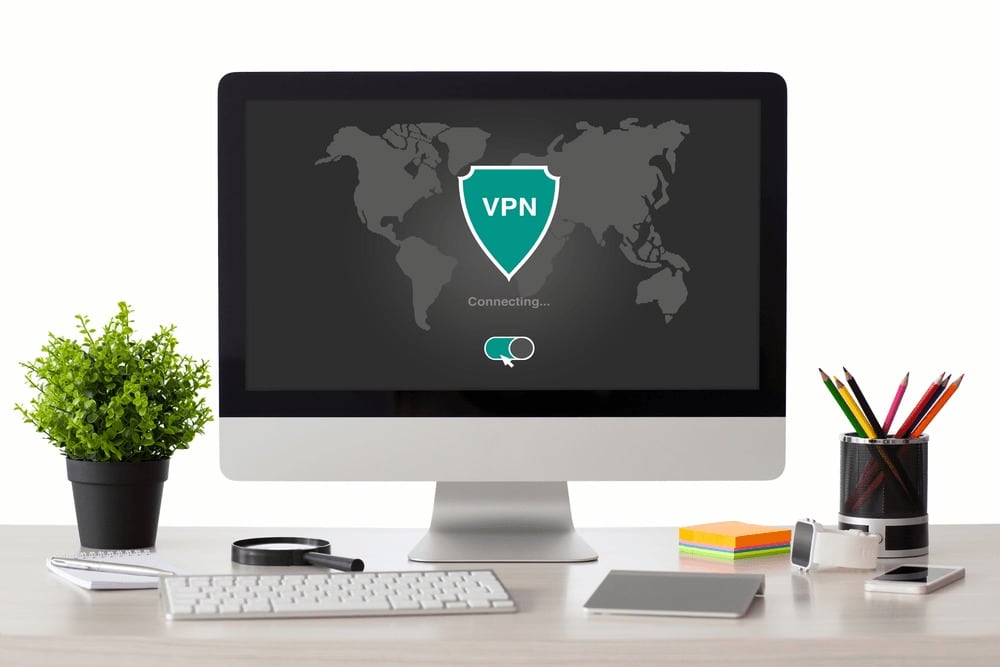Torrenting on university WiFi can be risky if you don‘t take the proper precautions. Network monitoring, traffic shaping, legal issues and malware threats are some of the key challenges. However, with the right tools and techniques, you can unblock torrent sites and hide your activity to torrent safely on campus internet.
In this comprehensive guide, we‘ll cover everything you need to know to torrent securely on university WiFi without getting into trouble.
What is Torrenting and Why Can it be Risky?
Torrenting refers to the peer-to-peer sharing of files over the internet using BitTorrent protocol. It allows you to download large files like games, movies, TV shows by fetching small pieces of the file from other users.
While torrenting itself is legal, it is often associated with piracy due to widespread sharing of copyrighted content. Downloading or distributing pirated material is illegal.
Here are some of the key risks of torrenting, especially on university networks:
- Network monitoring: Educational institutions monitor network traffic and can detect torrent usage which may lead to disciplinary action.
- Traffic shaping: Torrent traffic is often throttled or blocked entirely resulting in slow speeds.
- Legal issues: Downloading copyrighted stuff can lead to DMCA notices or even legal prosecution in severe cases.
- Malware threats: Pirated torrents and sites are common sources of viruses that can infect your device.
- Privacy concerns: Your downloading habits and activity is visible to the university and any snooping third-parties.
Why You Should Use a VPN for Torrenting
A VPN (Virtual Private Network) is essential for torrenting safely on campus WiFi. Here are some benefits of using a VPN:
- Encryption: VPNs securely encrypt all your traffic preventing throttling, blocking or tracking of your torrent downloads.
- New IP address: VPN assigns you a new IP making you anonymous on the internet and hiding your torrenting from university IT and outsiders.
- Access blocked content: VPN helps bypass restrictions to unblock torrent sites and other blocked content.
- Increased speeds: Switching to different VPN servers can help you get faster speeds if the university limits torrent traffic.
- Extra security: VPN adds an extra layer of protection from malware, hackers and cyberattacks when torrenting.
- Privacy protection: VPN prevents the university from logging your browsing history and hides torrent activity from ISP as well.
Choosing the Best VPN for Torrenting
With hundreds of VPN services out there, it can be tricky to choose the right one for torrenting. Here are the key factors to consider:
- Fast speeds: Look for VPNs that offer consistently fast connections to minimize speed loss. NordVPN, ExpressVPN and Surfshark are top speed performers.
- P2P support: The VPN should allow torrent traffic on their servers without any blocks or bandwidth restrictions.
- Strict no logging policy: Zero logging ensures no traces of your activity are stored by the VPN provider.
- Kill switch feature: Shutting down internet access if the VPN drops ensures your IP address and downloads remain hidden.
- Port forwarding: Select VPN services like ExpressVPN support port forwarding for faster torrent speeds.
- Device support: Apps for all platforms like Windows, macOS, iOS, Android to protect all your devices.
Based on these criteria, the top three recommended VPNs for torrenting are:
1. NordVPN – Offers excellent speeds, unlimited P2P traffic, zero logging, and advanced security features like double VPN and Onion over VPN. Plus you get a 30 day money back guarantee.
2. Surfshark – Provides very fast connections and unlimited devices support. Has hacklock feature that blocks cyberattacks in real time. Also gives a 30 day refund policy.
3. ExpressVPN – With consistently fast downloads, zero logging, and unlimited bandwidth, it‘s one of the top choices for P2P activity. Offers a 30 day money back guarantee.

Comparison of top VPNs for torrenting
Configuring Your VPN Correctly
Once you have decided on the ideal VPN service for you, it is important to configure it correctly for safe torrenting. Follow these guidelines:
Activate the VPN kill switch – This will cut off your internet access if the VPN connection drops to prevent identity leaks.
Enable Split Tunneling – Configure torrent client and VPN app to use the VPN tunnel so that only torrent traffic goes through the VPN. Keep other apps on your normal network.
Use appropriate VPN protocol – OpenVPN and Wireguard offer the best speeds. For added security, go for NordVPN‘s NordLynx based on WireGuard.
Select suitable VPN server location – Connect to a server near your actual location for faster speeds. Also check that P2P is allowed on the location.
Set up VPN on router – For complete protection and anonymity, install the VPN at the router-level to cover all connected devices.
Use Tor over VPN – On NordVPN you can route your traffic through Onion over VPN for additional encryption by combining VPN and Tor networks.
Additional Steps to Stay Anonymous
Using a VPN is a good first step but combining it with other measures can further enhance your safety and anonymity when torrenting:
- Firewall – Use firewall settings to only allow traffic through the VPN tunnel and block all other connections.
- MAC address spoofing – Change your device‘s MAC address to make it appear different on each network.
- Limit connections – Restrict the number of peers you connect to for any torrent download to avoid flooding the university network.
- I2P – Use the I2P anonymous network in addition to VPN for torrenting and access sites like The Pirate Bay.
- Sandboxie – Run your torrent client in Sandboxie isolation so that any malware doesn‘t infect your base system.
- Bridged adapter – Configure VPN connection using a bridged network adapter to further anonymize traffic.
- Disable WebRTC – WebRTC leaks can expose your real IP address. Disable it on VPN connections.
- SSL encryption – Enable SSL encryption in qBittorrent under Connection settings for secure tracker communications.
Seedboxes: An Added Layer of Anonymity
A seedbox is a remote torrent server that you can connect to via FTP or SFTP to download torrents. Using a seedbox in combination with a VPN provides unmatched anonymity when torrenting.
Benefits of adding a seedbox to your VPN setup:
- Downloading is handled completely off-campus by the seedbox so you don‘t tax the university‘s network.
- With server-grade speeds, downloads are super fast. Can get 1Gbps or higher download rates.
- Continues seeding and uploading on your behalf even after you disconnect. Great for maintaining ratios.
- Only the encrypted files are accessible to you rather than the actual torrent traffic.
Some popular seedbox providers include Seedhost, Ultraseedbox and Seedbox.io. Look for offerings with at least 1TB storage, 1Gbps speeds and a layered security system. Connect to your seedbox only over the VPN for complete anonymity.
Which Torrent Client Should You Use?
Your choice of torrent client also affects your security and download speeds. Here are some top options:
- qBittorrent – Open source client with no ads or malware. Allows encryption, IP blocking and binding to VPN interface.
- uTorrent – Extremely lightweight and great for older PCs. Get the classic pre-bloatware 2.2.1 version.
- Deluge – Supports encryption, IP filtering and proxy settings natively for private torrenting.
- BiglyBT – Has built-in I2P support allowing you to route torrent traffic through the anonymous network.
- Transmission – No frills, open source client well-suited for Mac and Linux systems.
For added security, bind or force your torrent client to only use the VPN tunnel interface under Network settings. This will prevent leaks if the VPN drops.
Optimizing Your Torrent Speeds
Using the fastest VPN servers close to you is the first step for good torrent speeds. Next, try these tips to optimize torrent downloads:
- Limit upload bandwidth to 80-90% of your maximum upload speed. This ensures you can still browse normally.
- Limit connections to a max of 50-100 peers per torrent. Too many connections overload your bandwidth.
- Enable protocol encryption in the client for faster peer connections. (Must have for privacy too)
- Adjust active downloading and seeding limits depending on your connection.
- Enable port forwarding on your VPN to bypass ISP throttling of torrent traffic.
- Split large file downloads into smaller pieces using your client‘s file selection settings.
Through careful VPN configuration and torrent client settings, you can get the fastest download speeds possible when torrenting over university WiFi.
Is it Illegal to Torrent on University WiFi?
While torrenting itself is generally legal, there are some things that could get you into trouble:
- Downloading or distributing copyrighted content like movies, TV shows and software without permission is usually illegal and unethical.
- Sharing files that you downloaded via university subscriptions with non-members may violate terms of use.
- Using too much bandwidth for torrents can violate university computer usage policies if it degrades connectivity for others.
- Attempting to circumvent network monitoring systems may lead to disciplinary action if prohibited by university rules.
To avoid legal hassles, either download legal torrents or stream content through official providers. Some legitimate uses of torrenting include:
- Downloading free software, games and mods from open directories.
- Sharing and syncing large files for work and research using Dropbox and Resilio Sync torrent links.
- Distributing authorized content by creators via RuTracker and other private trackers.
- Seeding Linux distro torrents on platforms like linuxtracker.org and ubuntu.com.
As long as you take precautions to avoid pirated material and unnecessary strain on campus systems, torrenting itself does not have to be illegal.
Wrapping Up: Torrent Safely on Uni WiFi
We‘ve covered a lot of ground here. Let‘s recap the key tips:
- Use a fast VPN like NordVPN to encrypt, hide and unblock torrent traffic.
- Configure the VPN properly with kill switch, split tunneling, ideal protocols and servers.
- Combine VPN with firewall rules, MAC spoofing, connection limits and other measures for better anonymity.
- Consider using a seedbox in addition to your VPN for complete privacy.
- Select a secure torrent client like qBittorrent and optimize settings for speed and security.
- Stay away from pirated torrents, and responsibly share only authorized content.
By following this comprehensive guide, you can safely unlock the full potential of torrenting over university WiFi without compromising on privacy, security or download speeds. What are you waiting for? Fire up that VPN and start torrenting!






